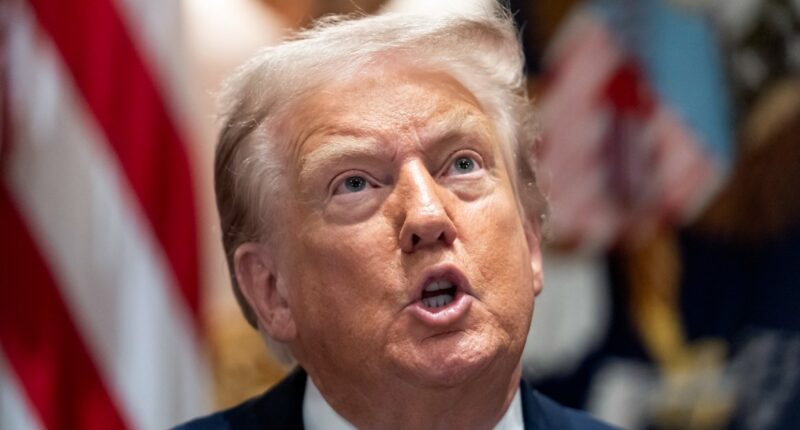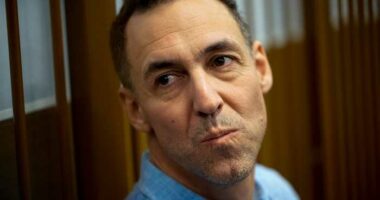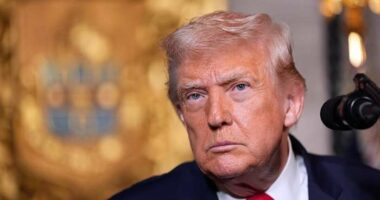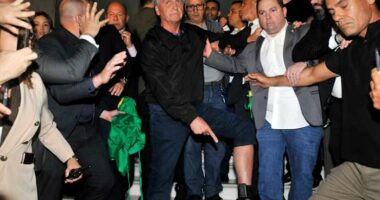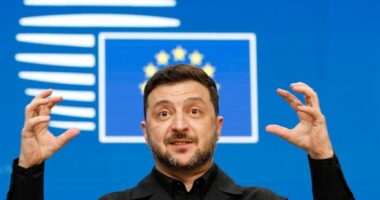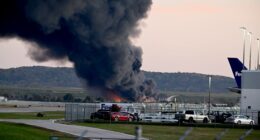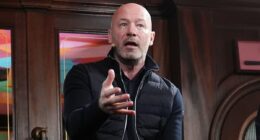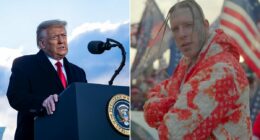Share this @internewscast.com
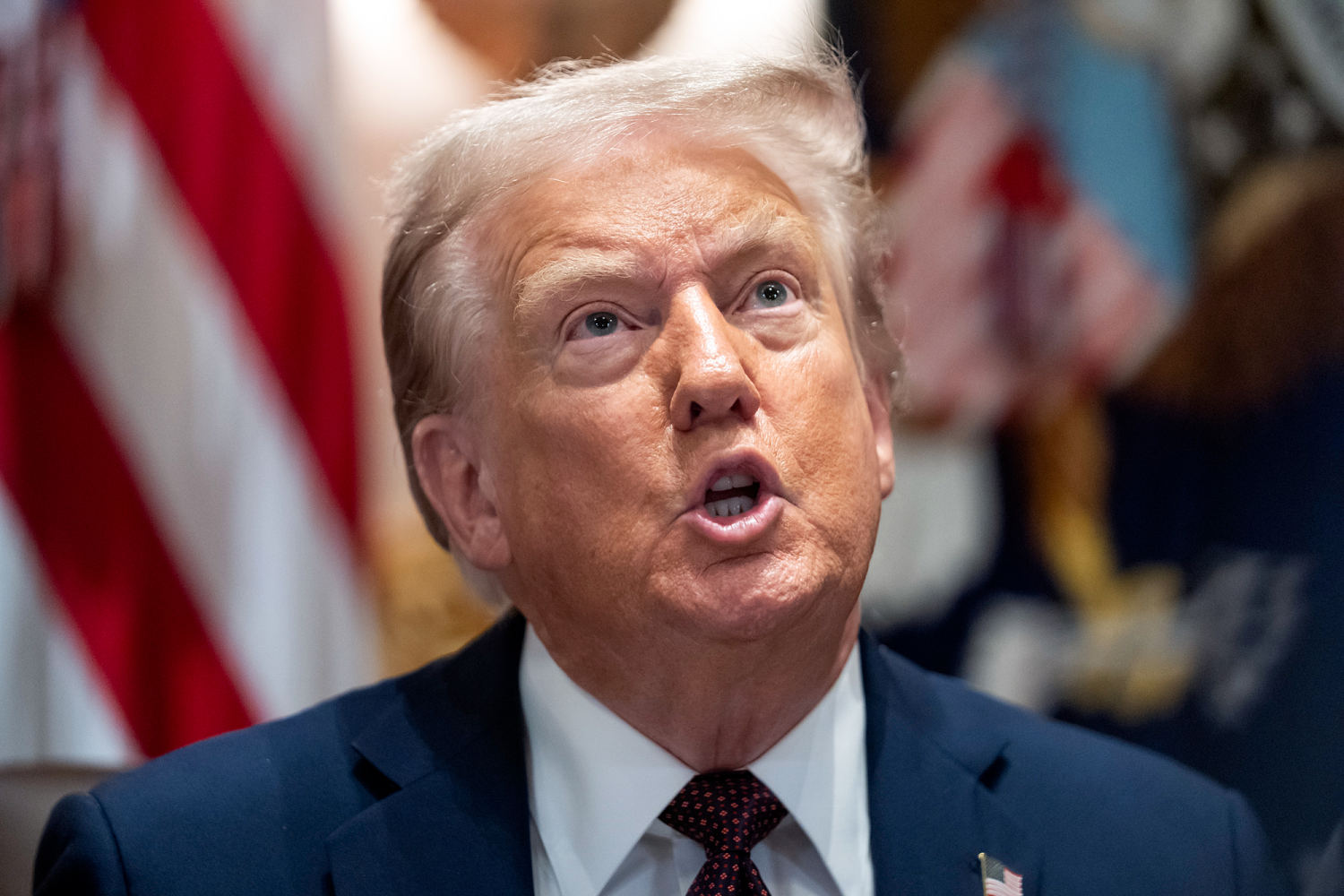
The Trump administration is issuing a stern warning to potential drug traffickers, highlighting the fate of those killed during a U.S. operation that targeted a boat on Tuesday in the southern Caribbean. This act marks a significant intensification of the drug war and exacerbates the ongoing conflict with Venezuelan leader Nicolás Maduro.
“Venezuela has been a very bad actor,” President Donald Trump said Wednesday in the Oval Office.
The U.S.’s aggressive stance in the area is prompting inquiries into its ultimate intentions and raises the question of how American intelligence agencies were certain that the vessel was carrying drugs and members of the infamous Venezuelan gang Tren de Aragua.
“We have tapes of them speaking,” Trump said. “It was massive amounts of drugs coming into our country to kill a lot of people.”
While President Trump’s exact plans regarding Maduro are not entirely clear, the U.S. appears to have a dual focus: reducing the influx of illegal drugs from Venezuela and exerting heavy pressure on the Venezuelan leader.
The strategy aims to drive Maduro into making impulsive decisions that could lead to his removal, all without deploying American troops on Venezuelan soil, as per a source knowledgeable about the Trump administration’s approach.
A second informed source indicated that last week, the administration discreetly signaled an intent to escalate pressure on Venezuela, suggesting the situation was on the brink of rapid escalation and warning that Maduro “had a lot to worry about.”
“There’s definitely going to be more to come” with regard to hitting drug cartel operations, the source said.
In 2019, during Trump’s tenure, the administration supported Venezuelan opposition leader Juan Guaidó as interim president amid mass protests against Maduro fueled by hyperinflation and frequent blackouts. Despite U.S. support for Guaidó, Maduro managed to retain his position of power.
Last month, some members of the Venezuelan opposition movement visited the State Department for meetings with top officials, according to two people familiar with the talks.
Rubio’s role
Marco Rubio has long been a hardliner on Venezuela, as a senator, as a presidential candidate, and now as secretary of state as well as national security advisor.
The source familiar with the administration’s thinking believes regime change in Venezuela has been Rubio’s goal. The administration is preparing for this by not recognizing Maduro as a legitimate president, accusing him of rigging elections and alleging he’s a narco-terrorist, the head of the Cartel de Los Soles. Several weeks ago, the U.S. doubled its reward for information leading to Maduro’s arrest to $50 million.
The source familiar with the administration’s thinking said the U.S. hopes that ramping up pressure on Maduro may prompt finger-pointing inside Venezuela and lead cartel bosses inside and outside the country to blame Maduro and force him out. The source speculated that Russia — not wanting to get involved in a domestic power struggle — would pull its financial, diplomatic and military support from Venezuela, long considered its ally.
Tuesday’s military strike on the alleged drug smuggling boat, which Trump said killed 11 people and did not hurt U.S. forces, came as a surprise to many members of Congress.
Democrats, even those in leadership positions on relevant oversight committees, have not been provided with any information about the strike, according to multiple congressional officials with direct knowledge of the situation. It’s not clear what information, if any, Republicans were given before or after the strike.
Rubio defended the strike on Wednesday while visiting Mexico, arguing that the typical interdiction procedures that the U.S. Coast Guard conducts to arrest drug smugglers didn’t work in these cases.
“These drug cartels, what they do is they know they’re going to lose 2% of their cargo,” Rubio said. “They bake it into their economics. What will stop them is when you blow them up.”
ditional U.S. military forces
Last month, the U.S. began sending more military resources, including three guided-missile destroyers, to the southern Caribbean. Stephen Donehoo, a former military intelligence officer specializing in Latin America, told NBC News the deployment was enormous.
“I haven’t seen this much U.S. naval military force in the Caribbean under the command of the Southern Command in decades,” Donehoo said. “All these ships have intelligence systems, and they are also armed to carry out this type of attack if necessary.”
In the last few weeks, Maduro has claimed the U.S. military presence in the Caribbean is aimed at overthrowing his government. He has deployed troops along the border while calling on thousands of civilians to join armed militias to defend the nation.
A senior White House official downplayed any possibility of the U.S. invading Venezuela, but said, “You can expect to see the president use any means necessary to tackle drug cartels.”
On Fox News Wednesday morning, Defense Secretary Pete Hegseth was asked about whether the administration’s goal was regime change in Venezuela. Notably, he did not rule it out.
“That’s a presidential decision,” Hegseth said.
The second source familiar with the administration’s thinking dismissed any threat posed by Venezuela’s troops and expressed skepticism that the country’s armed forces would remain loyal to Maduro.
“It’s a house of cards,” the source added, speculating that Maduro would see the writing on the wall and flee the country, perhaps to Cuba.
Maduro pushback
For its part, the Maduro government has escalated its criticism of the White House, even claiming the video of Tuesday’s attack on the alleged drug trafficking boat was created using AI.
“I can tell you that was definitely not artificial intelligence,” Hegseth said in the Fox interview. “I watched it live.”
In comments broadcast on Venezuelan state television Tuesday night, Maduro alluded to what he considered Rubio’s significant power within the Trump administration regarding Venezuela policy.
“The youth of the United States do not believe the lies of the big shot in the White House, Marco Rubio,” Maduro said. “Because who runs the White House is Marco Rubio — the mafia of Miami — who wants to fill Donald Trump’s hands with blood.”
More actions expected
The Trump administration’s strike against the cartel boat may only be the beginning of its actions in the region.
In February, the State Department designated eight drug cartels and criminal organizations as foreign terrorist organizations and specially designated global terrorists. That gave the White House new legal authorities to take military action against such groups throughout the Western Hemisphere.
Asked about the cartels in an interview last month, Rubio said it was time they were treated “as armed terrorist organizations, not simply drug -dealing organizations.”
The Secretary of State said the new designations would allow the Trump administration to target the cartel’s operations using other elements of American power, including U.S. intelligence agencies and the Department of Defense.
“It is a criminal enterprise — all the way to the various cartels that operate in Mexico, and in between,” Rubio said. “So, what it changes is it gives us legal authorities to target them in ways you can’t do if they’re just a bunch of criminals. It’s no longer a law enforcement issue. It becomes a national security issue.”
